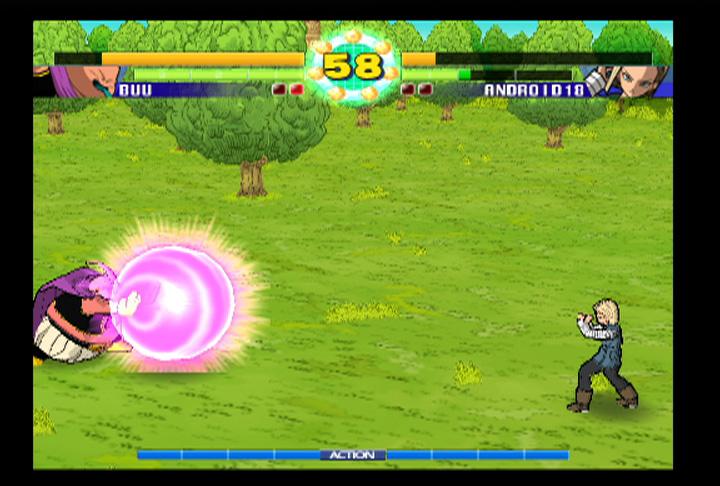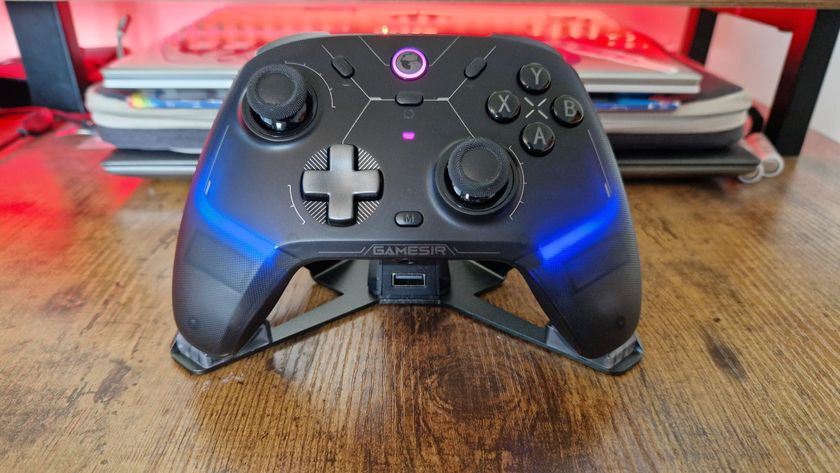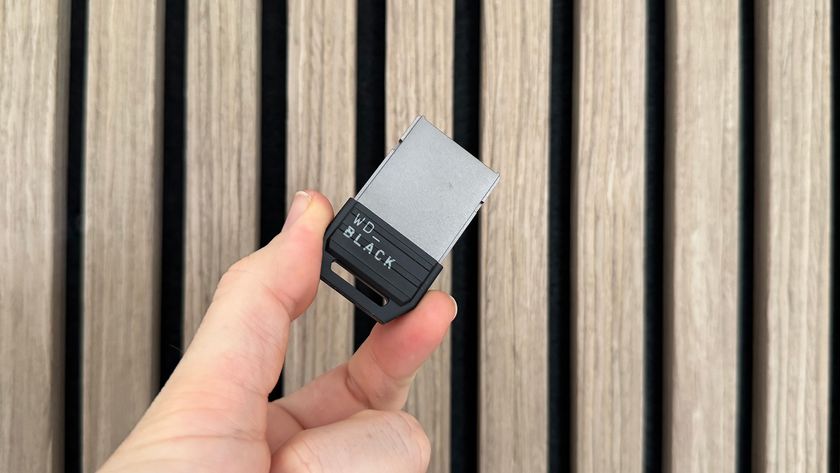Why you can trust GamesRadar+
The more "serious" arcade-style approach effectively drains the game of all that over-the-top, high-energy DBZ action we're used to. Attacks that once devastated entire planets now amount to little more than glorified hadoukens, and are easily blocked.
Although the combat is certainly different, it hasn't necessarily increased in depth. The easier computer opponents can be defeated nearly every time by repeatedly performing a one-button "homing attack" that sends you hurtling into your foe. The harder enemies are better at blocking, which tends to turn battles into long distance energy-attack contests that test your ability to repeatedly press down, down-forward, forward and Triangle.
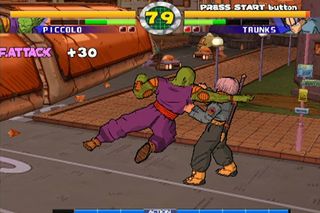
Two single-player modes are available in the game, but neither are very redeeming. Original mode is a direct port of the arcade game; you'll battle a series of random competitors, three rounds each, with unlimited continues, until you reach Cell. Your reward for beating Cell is a short, uninspired cutscene followed by the credits.
The second mode, ZSurvivor, doesn't do much to improve the situation. You must battle nine competitors consecutively with increasing difficulty, one round each, with one health bar. Between each match, you have a chance to gain bonuses, some of which will increase your health, attack power or defense, keeping you on your feet round after round.
Patched over the shallow single player modes is an experience and leveling system based around "Character Cards," profiles that allow you to customize and upgrade specific characters. As you play either Original Mode or ZSurvivor using a Character Card, you'll rack up Battle Points and collect Dragon Balls. Battle Points are used to learn new skills and attacks, while collecting seven Dragon Balls enables you to summon the magical dragon Shenron and wish for new abilities, attacks, characters, and extras.
More info
| Genre | Fighting |
| Description | Though not a new classic, the introduction of legendary Street Fighter II designer Noritaka Funamizu makes Super DBZ at least a decent departure from the Budokai series. |
| Franchise name | Dragon Ball |
| UK franchise name | Dragon Ball Z |
| Platform | "PS2" |
| US censor rating | "Teen" |
| UK censor rating | "" |
| Release date | 1 January 1970 (US), 1 January 1970 (UK) |

First trailer for Guy Ritchie's new action adventure featuring Star Wars' Natalie Portman and A Quiet Place's John Krasinski looks like The Mummy meets Indiana Jones
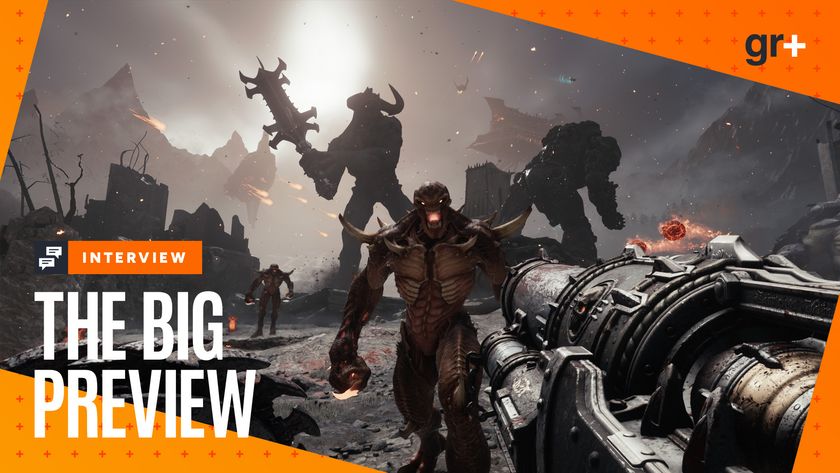
Doom: The Dark Ages' weighty shield saw and gory melee are vital to its refreshed combat loop: "The guns are more like rhythm guitars this time"
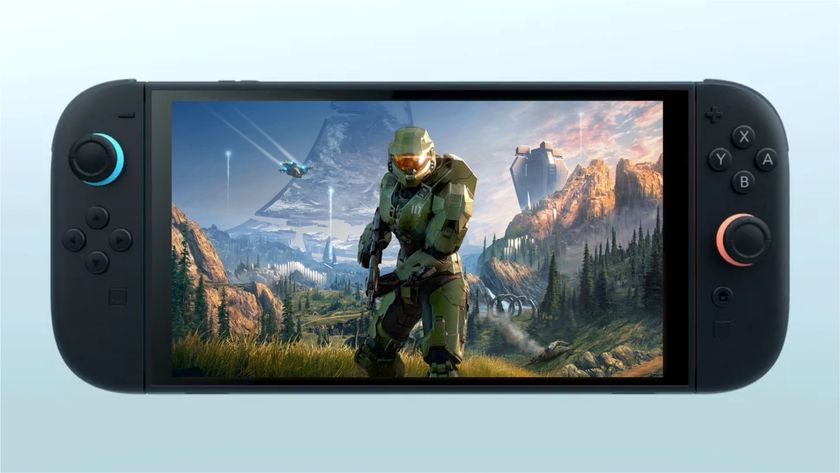
Xbox is bringing more of its games to rival platforms is "a big benefit that Nintendo didn't really have in the last generation" that the Switch 2 will have, says ex-marketing lead
